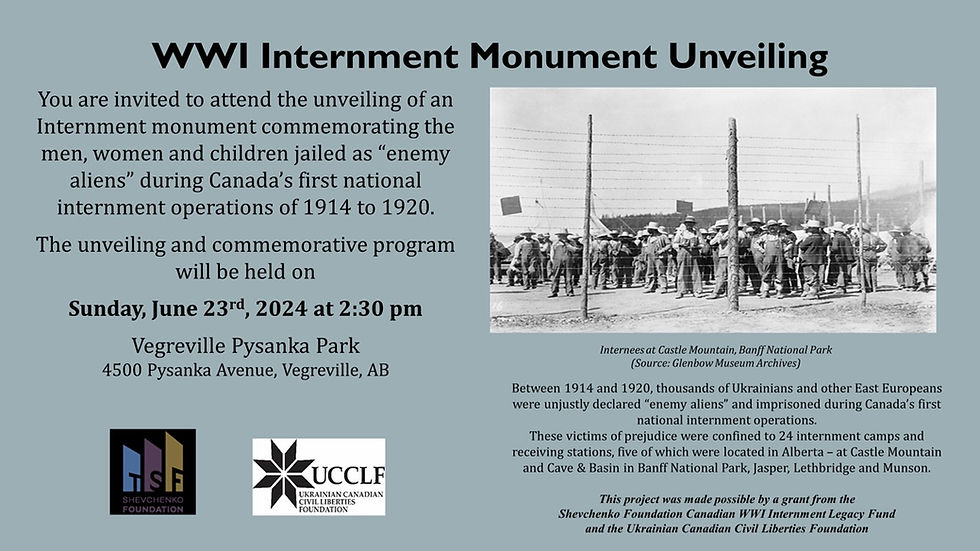Multicultural Coalition Calls Upon Prime Minister Harper to Review Funding
- Feb 28, 2006
- 2 min read
UCCLA, For Immediate Release (Toronto - 28 February 2006)
Thousands of Canadians of many different ethnic, religious and racial origins have begun sending postcards to the Canadian Prime Minister, the Rt Honourable Stephen Harper, asking him to reconsider providing federal funds for the development of a "Canadian Museum of Human Rights," as proposed by the Asper Foundation of Winnipeg.
Organized by Canadians for a Genocide Museum, this campaign calls upon the Prime Minister to review whether the Asper museum would be "inclusive and equitable" in its treatment of "all episodes of genocide that have befouled human history, before, during and after the Second World War, and not only in Europe but in Asia, Africa and elsewhere." Critics of the proposed museum, which has received tentative pledges of federal, provincial and municipal funding, believe that its central focus will be an emphasis on the horrors that befell European Jews during the war, suggesting that this community's suffering was somehow more important than that of others.
Commenting on the protest, John Gregorovich, president of Canadians for a Genocide Museum said:
"We endorse the concept of an inclusive Canadian museum that hallows the memory of all victims of genocide, regardless of whether they fell victim in Europe, Asia, Africa or elsewhere, before or after the 20th century. In a multicultural society like the one we have today in Canada we do not believe that federal, provincial or even municipal funds should be given to a project that diminishes the tragedies that many peoples experienced before some were fortunate enough to find asylum and an opportunity for rebuilding their lives here. We all share a desire to build Canada together. That won't be easy if taxpayers' dollars are allocated to a private project that claims one or two communities are more deserving of historical memory than others. We are therefore asking Canada's Prime Minister to review this project and ensure that all of the stakeholder communities are engaged in that consultative process. Without such transparency, accountability and inclusiveness we can not support federal funding for this museum."



Comments